Bond University 2016
In our final year of studying Medicine, we are given the opportunity to travel overseas and experience the healthcare system of another country - and what a privilege that is! Nepal was my destination of choice for a number of reasons; it’s a land similar to my own background and values with breathless beauty and exhilarating experiences to be had. What I found it to be was much more than I could have ever anticipated.
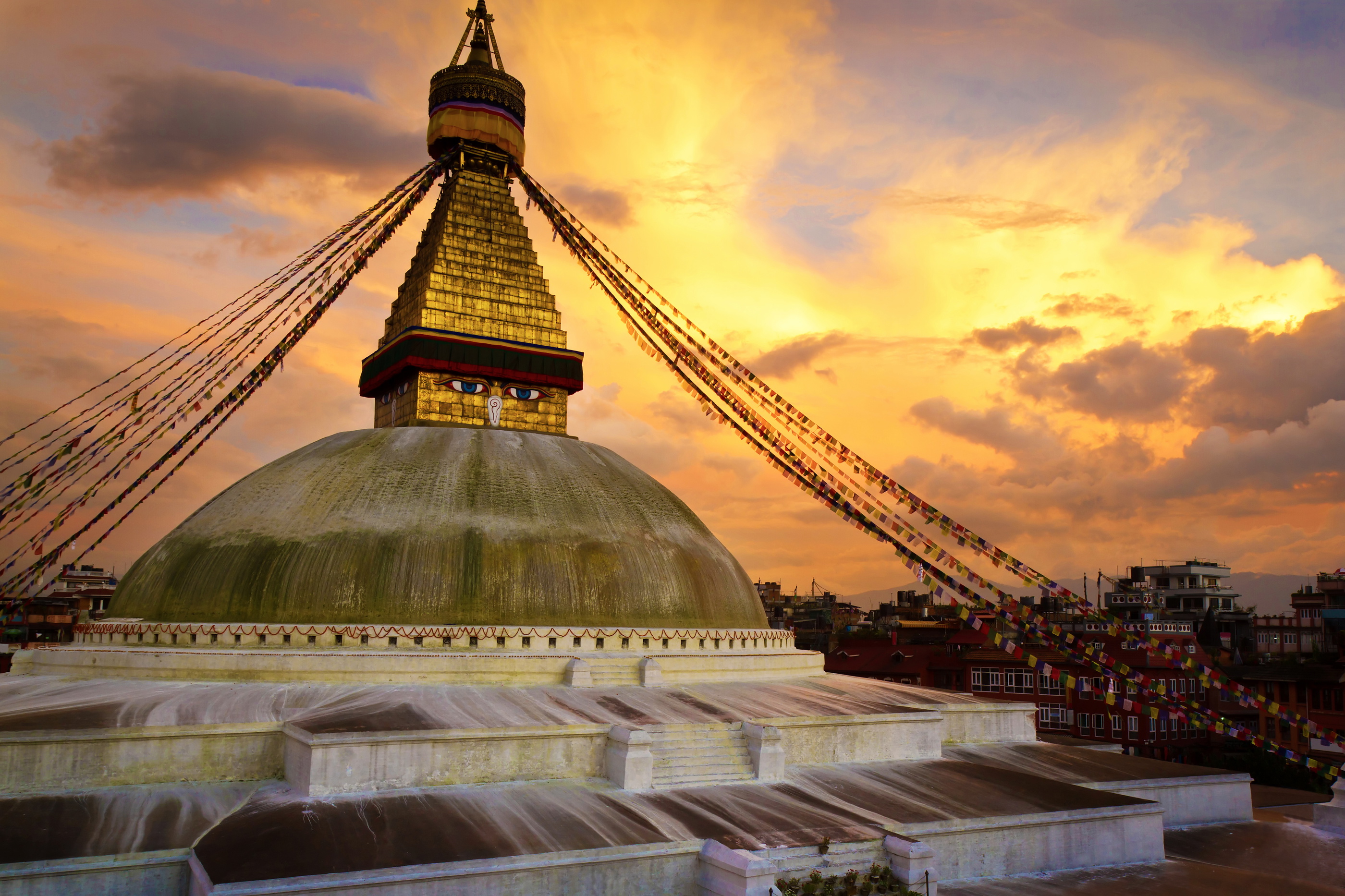
I chose Work the World to facilitate my placement as I had heard wonderful reviews from a friend, and with the guidance of placement officers, I decided to spend four weeks in one of the hospitals in Kathmandu, and one week in a rural mountain village healthcare post. The MyTrip portal on WtW’s website made accessing all the answers to my questions as easy as a click of a button – I could see information regarding the hospital, my accommodation, and the other students in the house. The pre-arrival care reassured me I was in good hands and about to embark on an adventure.
They definitely made the Work the world house a warm, welcoming, home away from home.
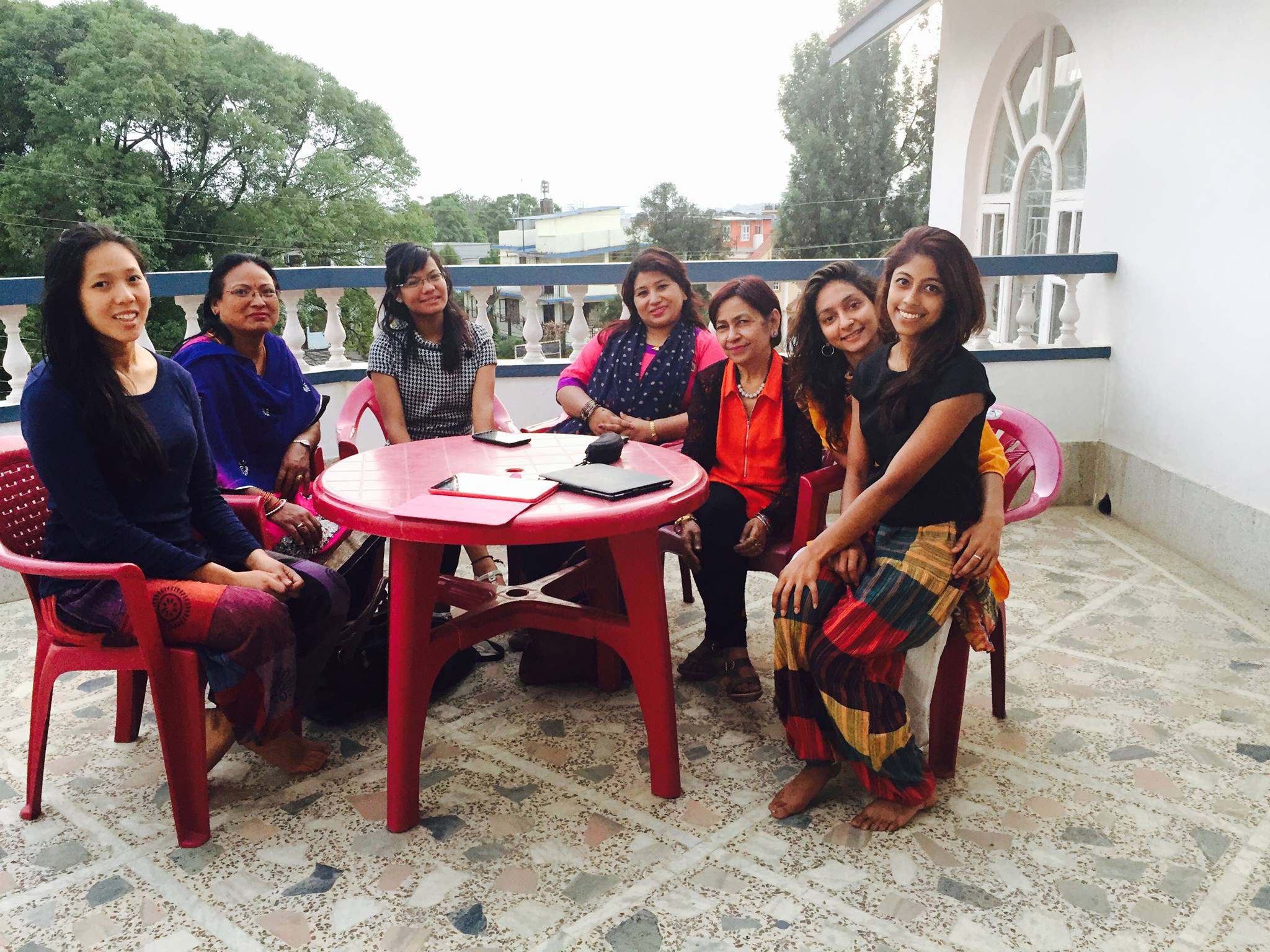
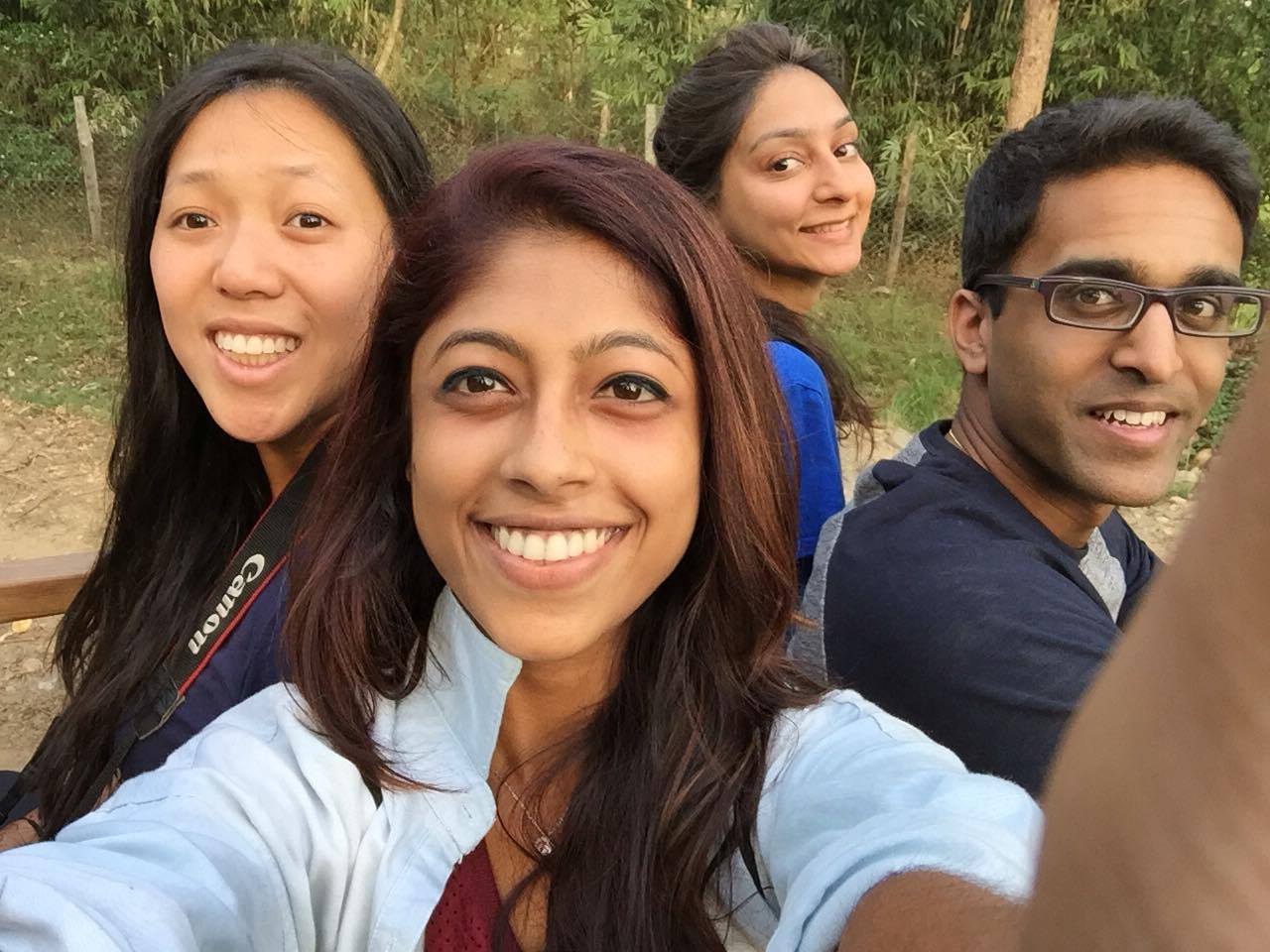
I was met at the airport by WtW staff and taken to the house to be introduced to the house staff, the other students, and my home for the next month. I also had a meeting with the Program Manager to discuss my past placements, my current skills and my ambitions for my placement at the hospital. I had decided I would spend the four weeks in Internal Medicine with the Respiratory team, as I felt this field was one of my weakest and thus an area I wanted to improve, but I was assured that because of WtW’s great relationship with the hospital, this was flexible and if I ever wanted to try anything else, the hospital would try to accommodate my wishes.
Most of the patients did not speak or understand English, but all of the hospital healthcare workers did, and so the ward rounds would be performed in English. My consultant was particularly attentive to this, and would often summarise the situation and conduct teaching for us in English. Although this meant I would be unable to take proper histories with patients alone, I found I didn’t mind as I shifted my aim for my trip from practical skills practise to interpreting data and results already gathered and working as part of the team.
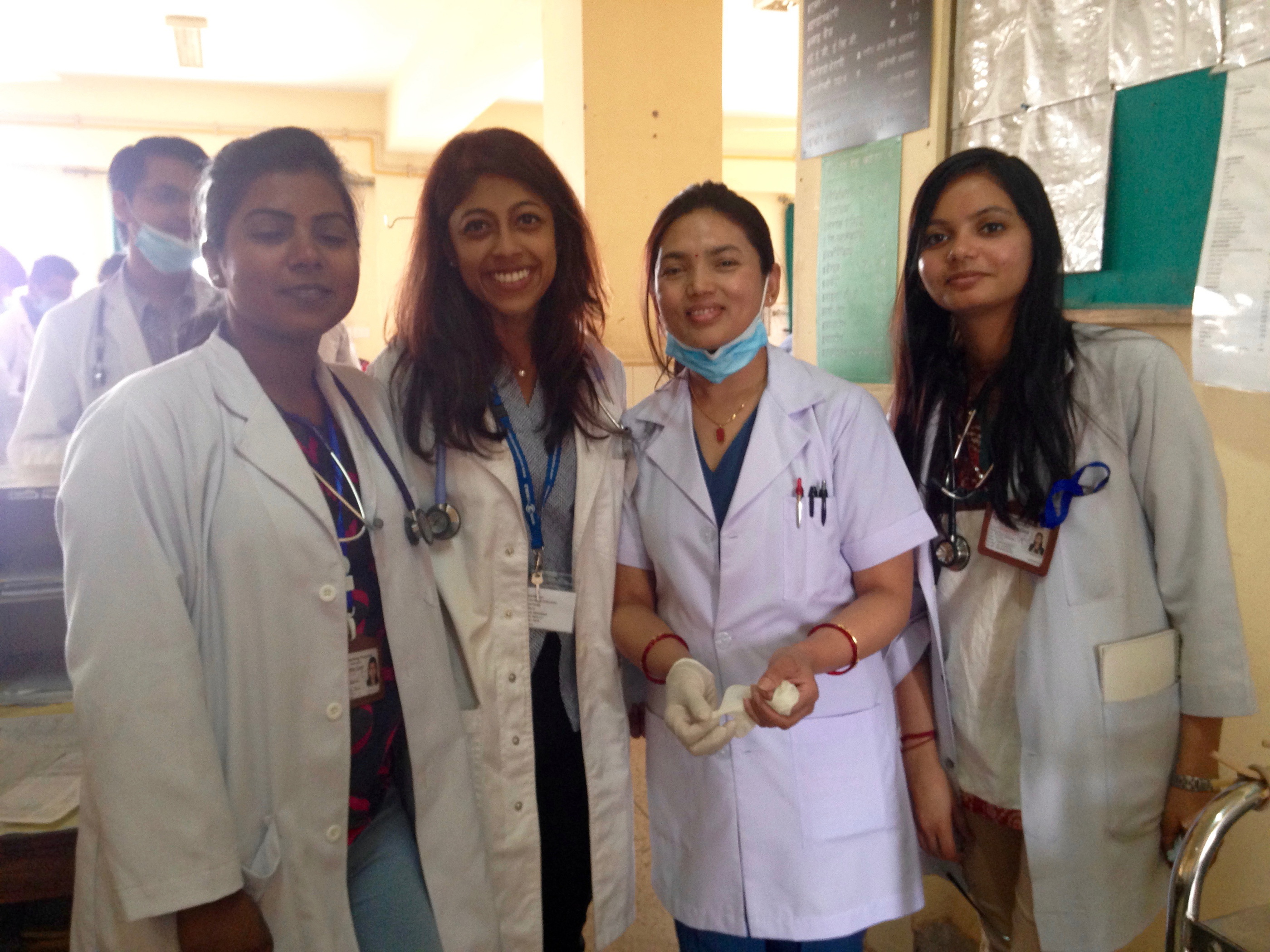
From the moment I stepped into the hospital it was evident the healthcare system in Nepal was completely different to that back home in Australia. Swarms of patient families would be queued outside the hospital pharmacy and lining the corridors – sleeping on their own mats, and cooking with their own brought utensils, pans and gas stoves. Whilst the role of a nurse in Australia is diverse, largely responsible for the day-to-day care of the patient, this responsibility in Nepal remains that of the patient’s family. The family would attend to the patient’s every need. The nurses in Nepal would mainly just administer the patient’s medications and aid the doctors to perform their jobs. This concept of family-centred care gave the family much more power than in Australia. I found this heart-warming yet could see how this could also cause problems.
As expected, I saw conditions less common in Australia and dominant in Nepal. The most striking was Tuberculosis. Whilst TB can be found in certain parts of northern Queensland, it definitely is not common in the Gold Coast, and as a communicable disease must be reported to the government. However, in Nepal, the predominant belief is that everyone has at least latent TB already, and thus very few precautions are taken to prevent its spread, even amongst healthcare workers. It was remarkable to see all the foreign medical elective students wearing their facemasks on the ward rounds, yet the Nepalese staff bare faced. The other dominant condition I saw was COPD. Again, whilst this is a very common condition in Australia, I saw it in on a whole other level in Nepal. COPD is generally very unlikely in patients below fifty in Australia, though all the patients were presenting in their forties in Nepal. The majority of patients would also be females, since they would stay at home performing household chores and commonly smoking. Their cases were extremely severe and their chest X-rays textbook presentations. Almost every patient would be requiring oxygen. Same condition, younger age, opposite sex, greater severity.
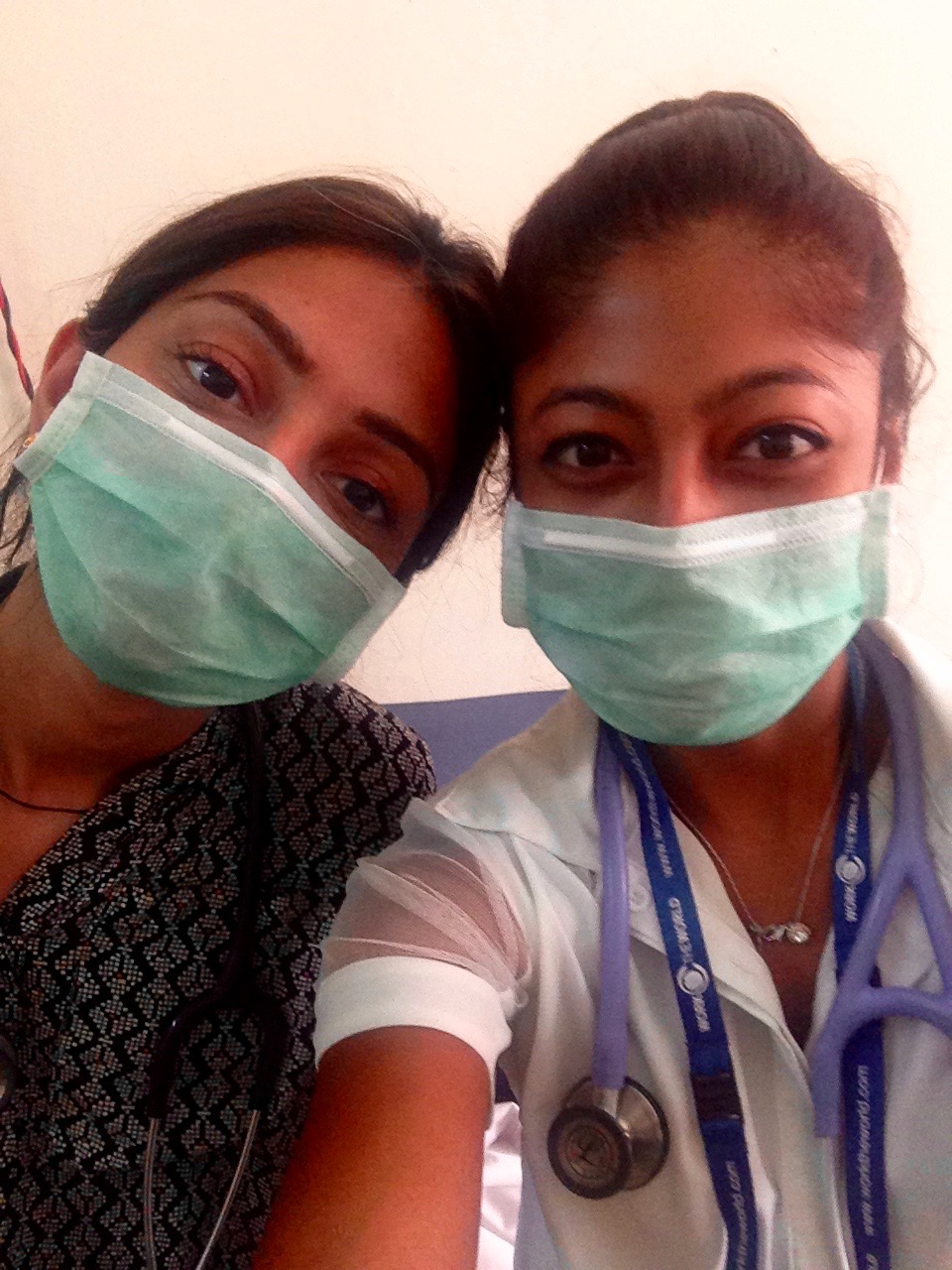
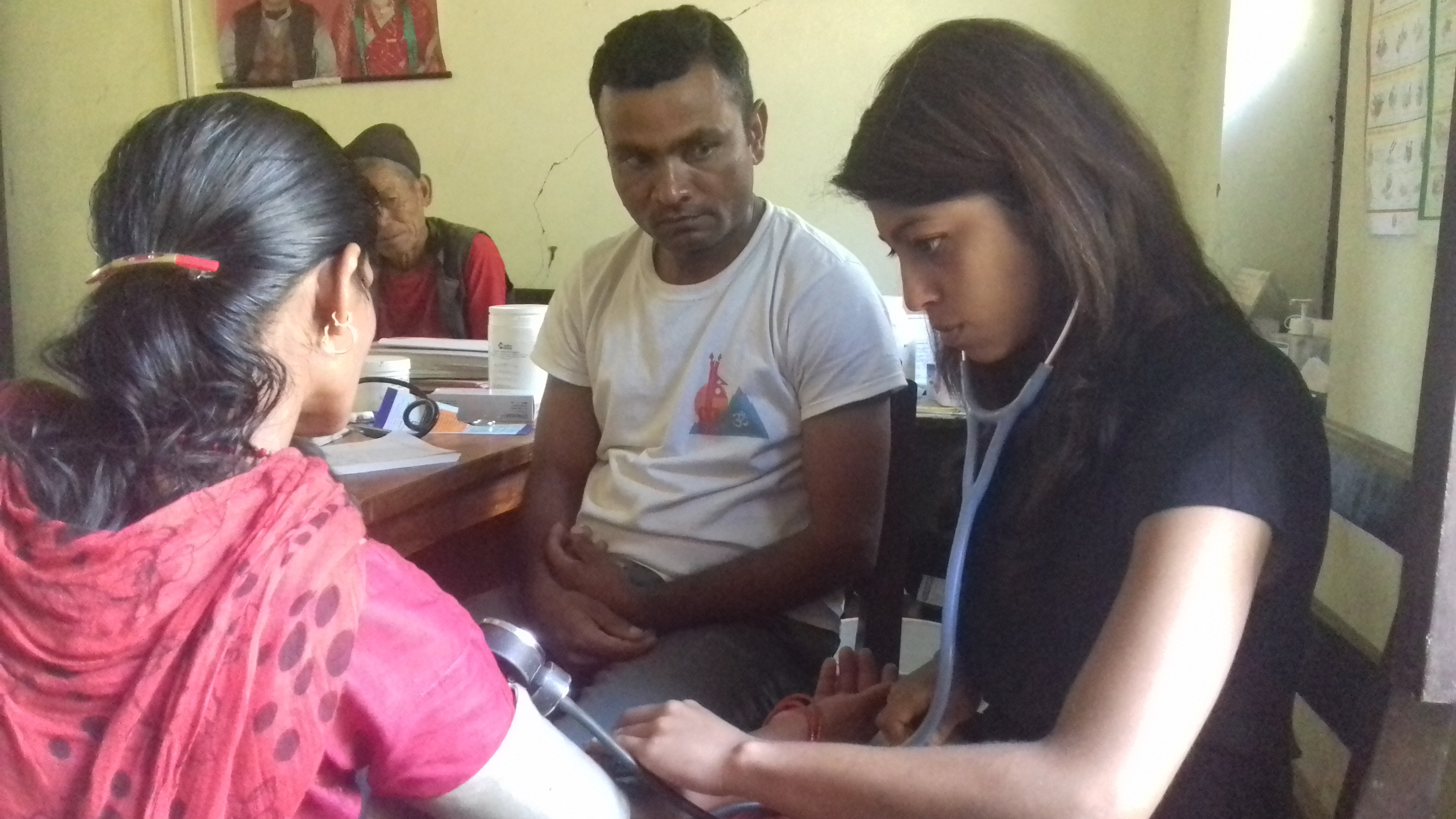
Outpatient clinic would run two hours twice a week, and those two hours would be absolute yet somehow controlled mayhem. In one room, the two respiratory consultants would sit across each other from a table and beside them would be another stool for their patients. Although the consultants would try to maintain order and keep only the patients being addressed in the room, other patients would enter and the whole rooms would be packed. I began to truly appreciate the doctor-patient room setup and our spatial respect back in Australia. In the two-hour session, each consultant would see on average 60 patients – spending only two minutes with each patient. Their history would be streamlined, usually multitasking and answering the queries of interns at the same time. I found this incredible, and it inspired me to believe that with experience, perhaps I too would be able to identify the main presenting complaints and handle them appropriately while still being thorough.
I spent my final week at a healthcare post in a rural mountain village approximately 20km south of the Tibetan border.
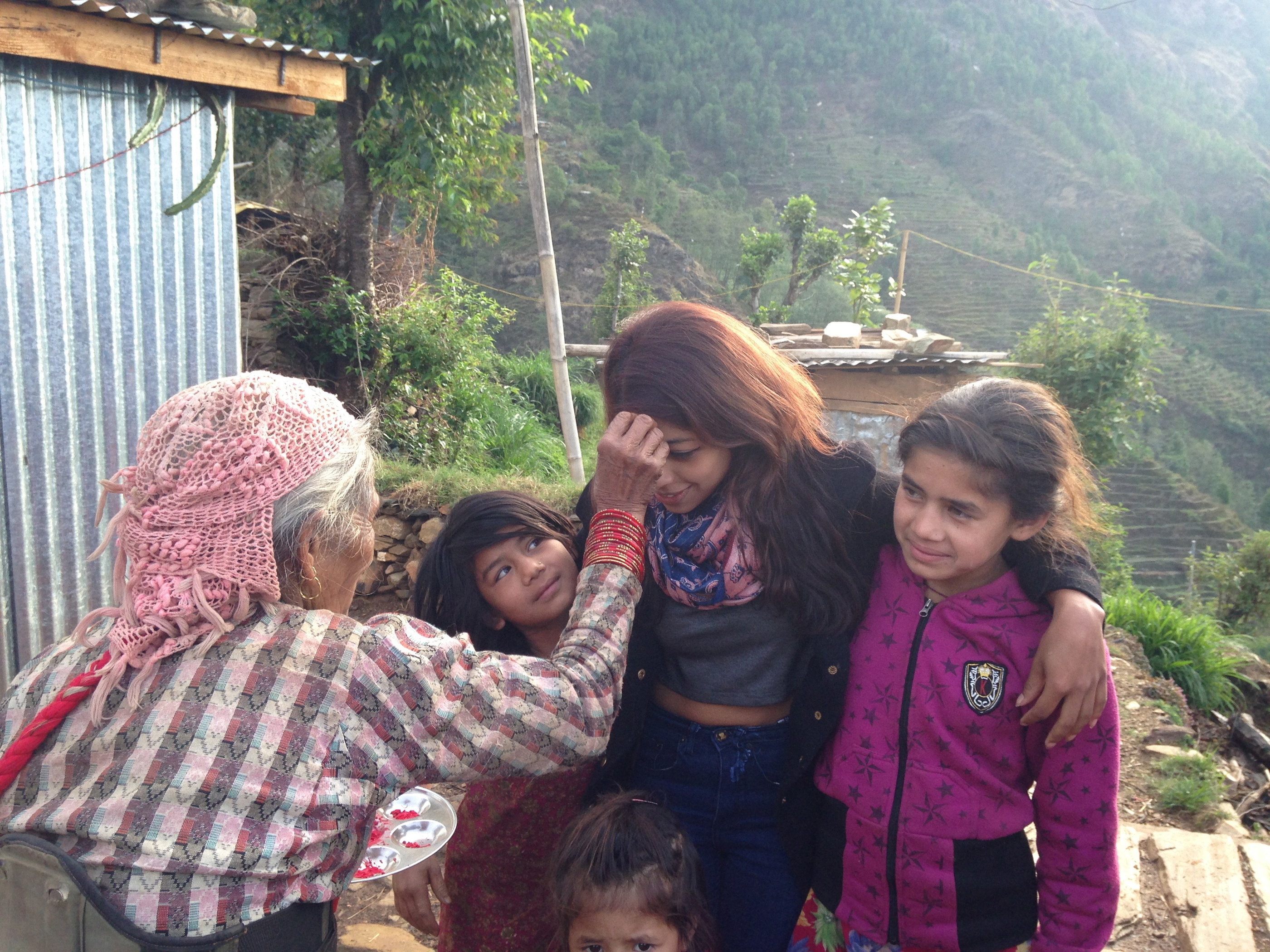
Work the World Nepal go the extra mile to affiliate themselves with villages they carefully handpick and assess themselves to bring another unique experience to their students, and thus I spent my final week at a healthcare post in a rural mountain village approximately 20km south of the Tibetan border. This is definitely an opportunity not to miss. No one in the village speaks English, but WtW facilitates this by providing a full time guide who would translate everything from the patients’ complaints, healthcare assistants views and my host family’s interactions. Sameer is perfect for his job. Not once did I feel unwelcome with the host family despite not being able to speak the same language, and the children really enhanced my experience. I was completely immersed in the village life to whatever extent I felt comfortable: ploughing the field, cutting the grass, feeding the many farm animals, weaving carpet, cooking and enjoying the variety of food. Amma, the host mother, is one of the strongest, inspirational women I know, and she will always be my Nepalese mother! From a medical perspective however, here I was most confronted by the lack of education, understanding, and compliance by the people. The scope of the healthcare post was the absolute bare minimum, with only a list of 25 drugs provided by the government, and the ability to perform no investigations. I took histories, all translated by my guide, though I did find there to be discrepancies in his choice of wordings at times, often for cultural reasons.
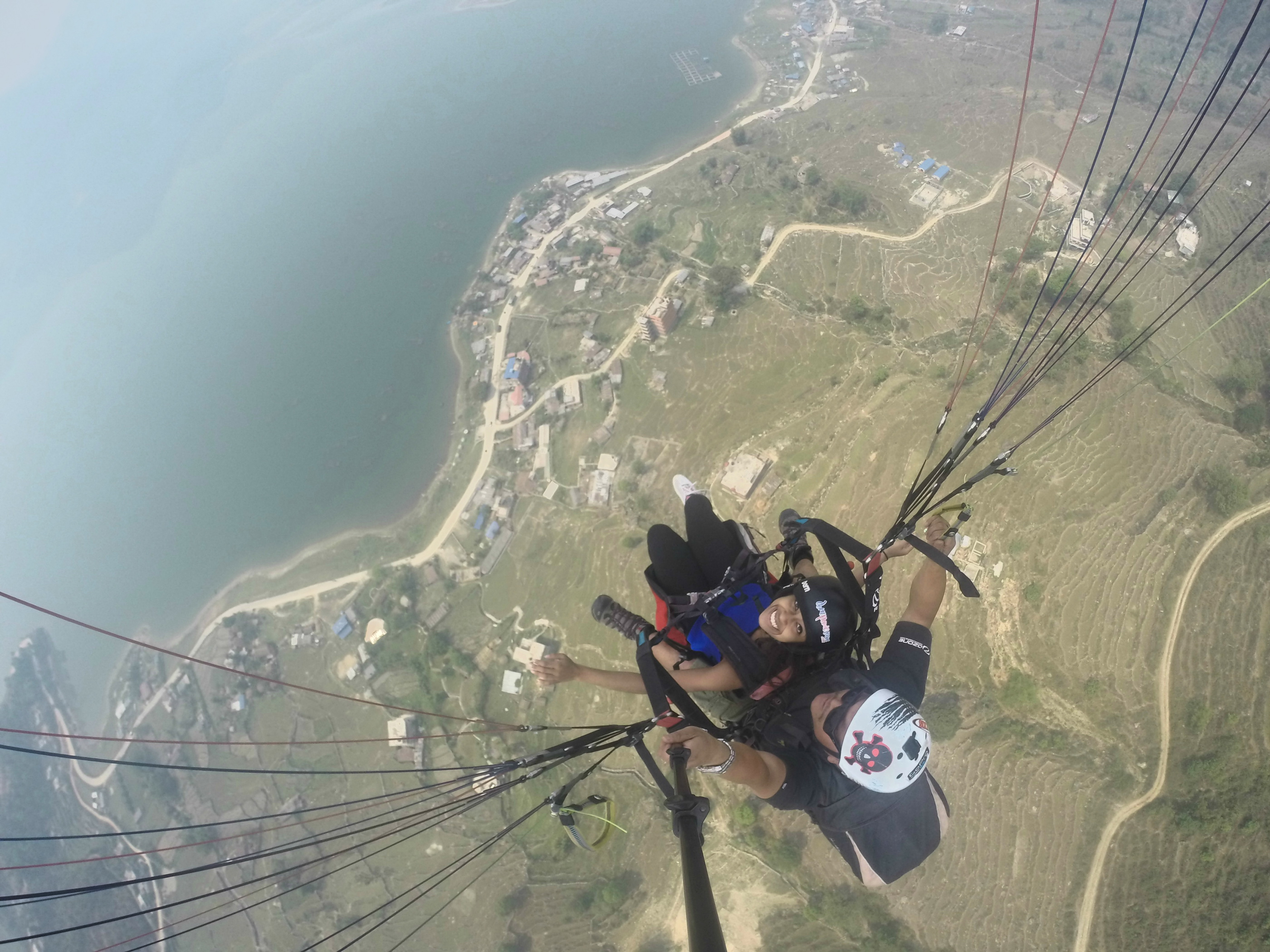
My stay in Nepal was far from all work and no play! I was sure to make the very most of every opportunity I had, from meeting people from all walks of life, understanding the diversity in culture and religion, soaking up the stunning natural beauty, to indulging in the delightful traditional food. Manita and M.D. in the WtW house spread out the most mouth-watering feast every morning and night for breakfast and dinner, and stock the house with plenty of snacks to keep us well fuelled everyday. They definitely made the WtW house a warm, welcoming home away from home. But the true backbones of the production were Sean, the Program Manager and Uma, Assistant Program Manager. I don’t think you’ll find people willing to go as above and beyond anywhere else. The duo held our hand every step of the way, letting us fly solo whenever we wanted but always in the background there to catch us if ever we fell. With their vast amount of knowledge and contacts, they were able to make recommendations, help us book our trips promptly, and even assist in us getting the best deals. On our first weekend, our whole house went to Chitwan National Park, we just couldn’t imagine how anything could possibly top it. But the rest of our trips matched the high, including white water rafting and paragliding in Pokhara, visits to local orphanages, and diving headfirst into the sensory overload of Thamel.
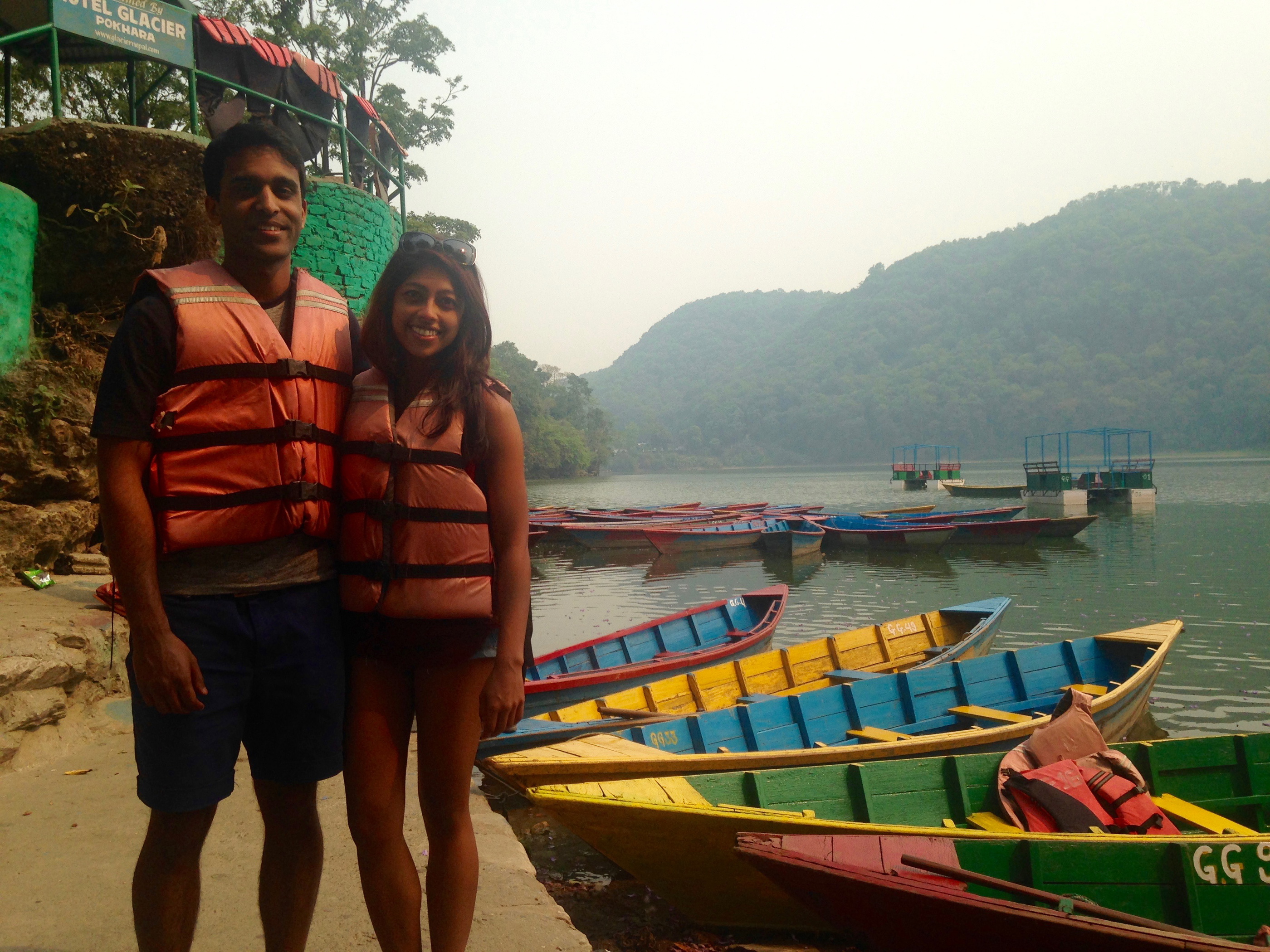
My elective in Nepal was definitely eye-opening. I became much more appreciative of the basic care we believe all people are entitled to, regardless of their pay. I feel so privileged to have been able to experience the Nepalese culture, and see how society viewed medicine and the human body. Going with WtW made it all the better, and took my experience to a completely different level to what I would have had without. Months on, Nepal and WtW has since featured in many of my stories still. It has stolen a piece of my heart and replaced it with memories and friendships to last a lifetime.
%2022.webp)
%2014.webp)




